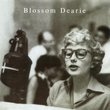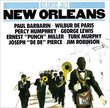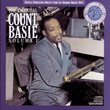| All Artists: Art Tatum Title: Classic Early Solos (1934-1937) Members Wishing: 0 Total Copies: 0 Label: Verve Release Date: 10/8/1991 Genres: Jazz, Pop Styles: Swing Jazz, Traditional Jazz & Ragtime Number of Discs: 1 SwapaCD Credits: 1 UPC: 011105060721 |
Search - Art Tatum :: Classic Early Solos (1934-1937)
 | Art Tatum Classic Early Solos (1934-1937) Genres: Jazz, Pop
Art Tatum was simply a marvel at the piano keyboard, a whirlwind of creative energy who could switch suddenly from a lilting swing to runs of such speed they might levitate the piano. This CD collects all his Decca recordi... more » |
Larger Image |
CD DetailsSynopsis
Amazon.com Art Tatum was simply a marvel at the piano keyboard, a whirlwind of creative energy who could switch suddenly from a lilting swing to runs of such speed they might levitate the piano. This CD collects all his Decca recordings from the 1930s, 16 tracks from 1934, including alternate versions of three pieces, and four from 1937. Tatum was both synthesis and extension of the great pianists who had preceded him, including elements of stride that would suggest James P. Johnson, Fats Waller, and Duke Ellington, but his greatest influence was unquestionably Earl Hines. Hines's sheer command of rhythm and harmony permitted extraordinary creative freedom, and as Hines withdrew from solo piano recording in the '30s, Tatum emerged to build on his innovations. The two versions of "When a Woman Loves a Man," recorded a few weeks apart, demonstrate how differently Tatum could approach the same tune, but each piece here is a striking example of Tatum's inventiveness. He doesn't just transform a song's harmonies, he often transforms its mood; a ballad like "Ill Wind" moves from the pensive to the exuberant. While ecstatic virtuosity may be the dominant characteristic of Tatum's music, there's an increased depth on the tracks from 1937, which is particularly apparent on Fats Waller's "Stormy Weather," imbued here with a deep and languid blues feeling. --Stuart Broomer Similarly Requested CDs
|
CD ReviewsExuberant early Tatum 03/19/1999 (5 out of 5 stars) "This is Tatum in the Springtime flush of strength and power-- the despair of all other musicians.'Liza',especially the second take recorded a few months after the first,gives us all the musical excitement we want, and more.With these early recordings Tatum burst upon the firmament like a supernova,and the language of jazz was changed forever." Genuine. 02/19/2000 (5 out of 5 stars) "The pre-bop jazz piano master's unique dynamic style with incredible speed, accuracy, subtlty, and rich ornamentations is well presented in every tracks on the CD. Oscar Peterson mentioned "These guys are pretty good." before he knew Tatum and listened to Tatum's recordings for the first time. The fast accurate and subtle stride seems almost impossible to most pianists even today."
|

 Track Listings (20) - Disc #1
Track Listings (20) - Disc #1






